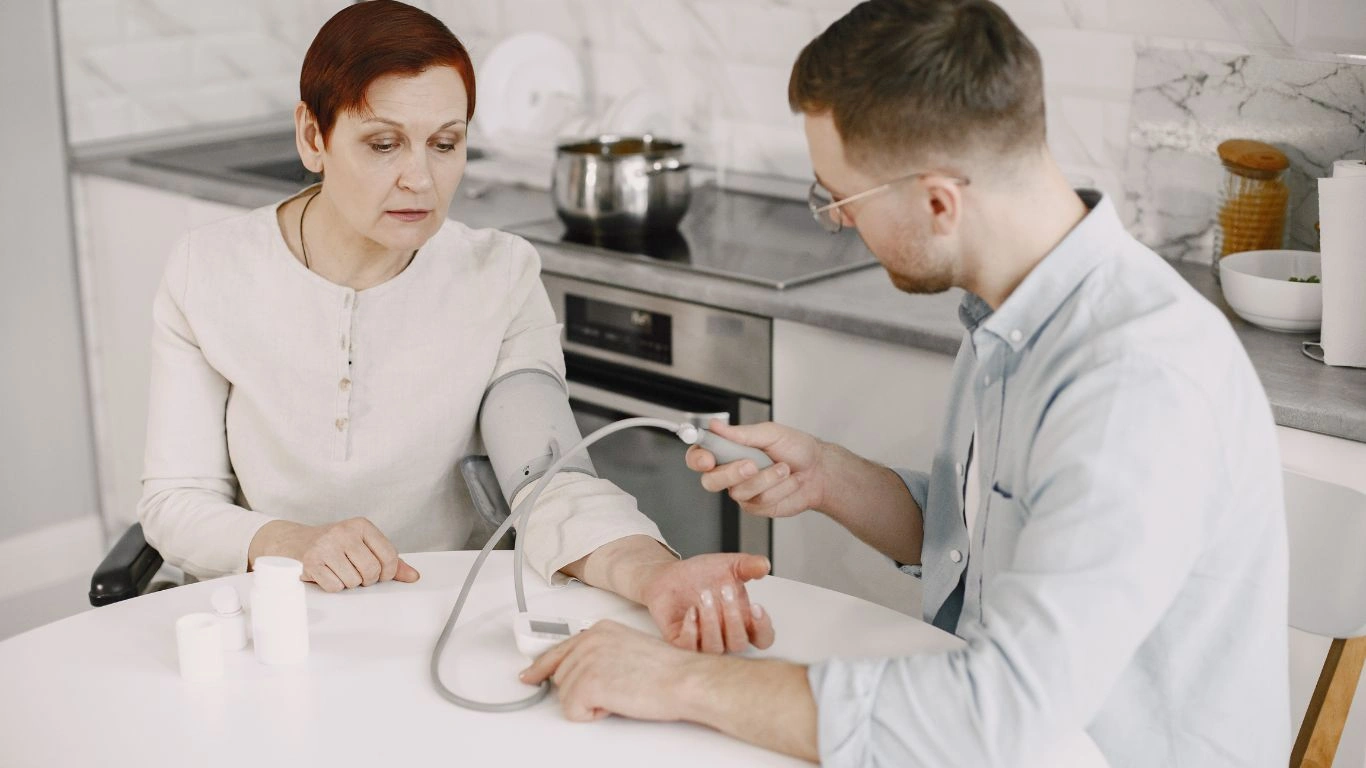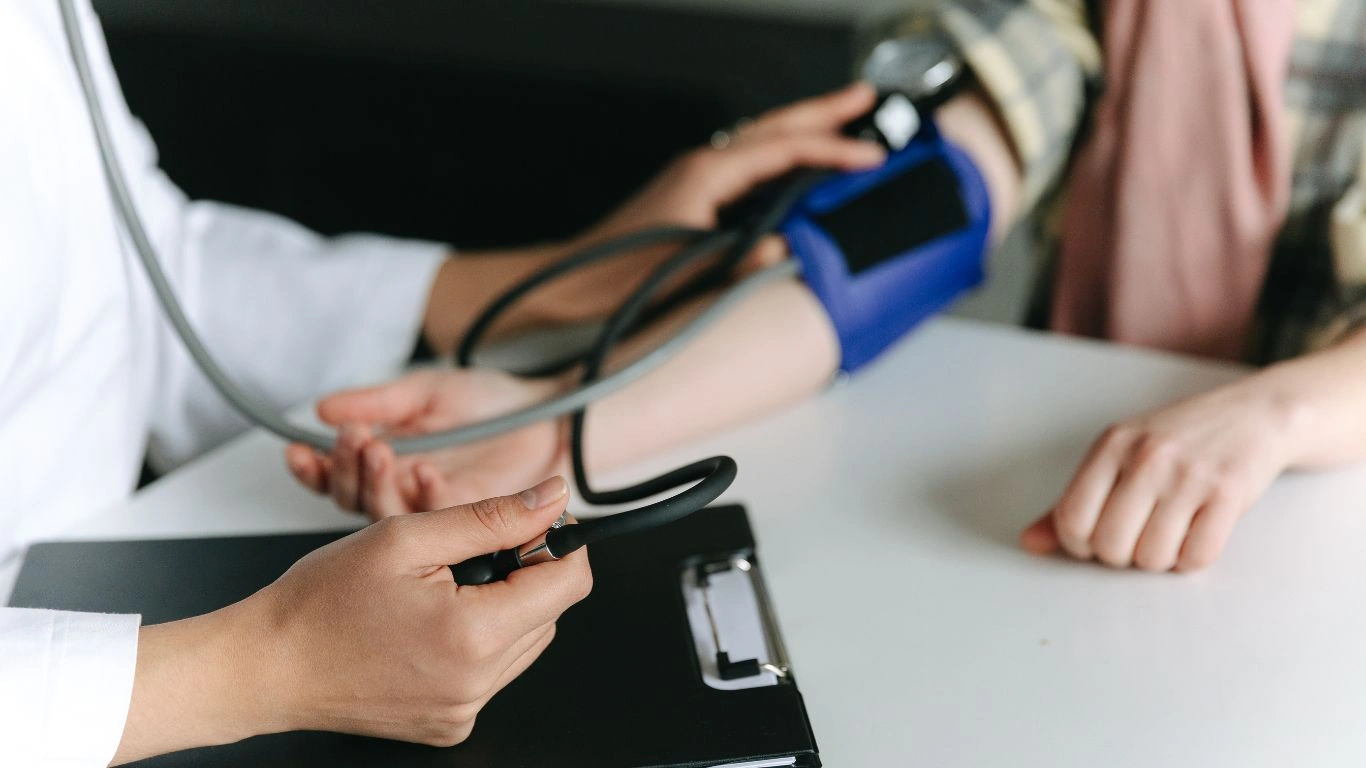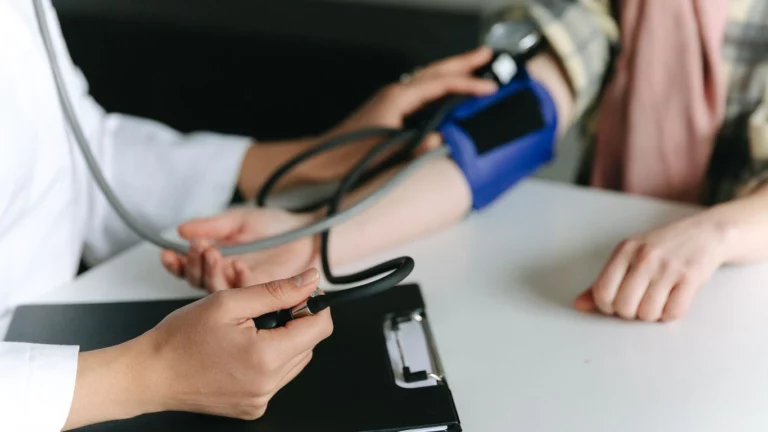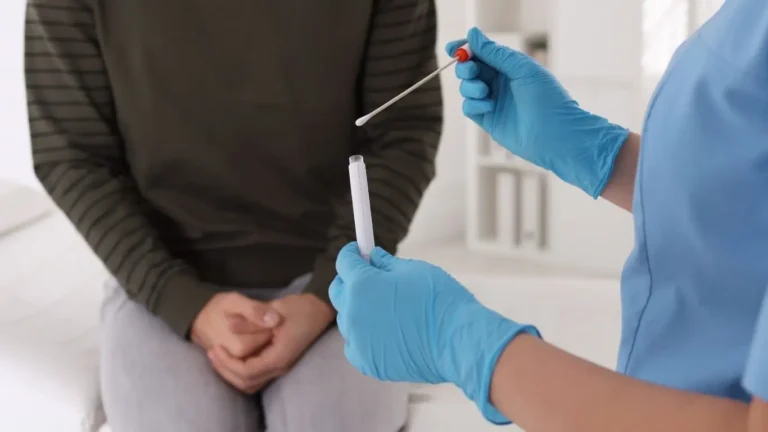Powerful Herbal Remedies for Stress-Induced Hypertension That Actually Work
If you’re like many of my patients who’ve come into the clinic feeling overwhelmed and tense, only to discover their blood pressure is climbing higher than expected, you’re not alone. Stress is a sneaky contributor to hypertension, and over the years, I’ve noticed more and more people asking about herbal remedies for stress-induced hypertension. And honestly? I get it. The idea of calming your nervous system with the help of nature is incredibly appealing, especially when the pharmaceutical route comes with side effects or just doesn’t feel right. So, let’s unpack this topic with a grounded, real-world look at how herbs might help—and how you can explore them wisely.
Understanding the Link Between Stress and High Blood Pressure

Let’s start with the basics. When you’re stressed—whether it’s traffic, tight deadlines, or even emotional upheaval—your body flips into fight-or-flight mode. That means a surge of hormones like cortisol and adrenaline, which temporarily increase your heart rate and narrow your blood vessels. Over time, if that stress isn’t managed, this response can lead to chronic hypertension.
I’ve had patients who were eating well, exercising regularly, taking their meds as prescribed—and yet, their blood pressure remained stubbornly high. Once we started diving into their lifestyle and stress levels, the missing piece of the puzzle started to become clear. In many cases, they were living in a constant state of tension, which no pill alone could fix.
Why Herbal Remedies Deserve a Seat at the Table

Here’s the thing—I’m a trained internist. I believe in evidence-based medicine. But that doesn’t mean I discount natural solutions, especially when there’s tradition, anecdotal evidence, and emerging research to support them. Herbal remedies for stress-induced hypertension aren’t a miracle cure, but they can be a meaningful part of a holistic plan when used responsibly and under the guidance of a professional.
Top Herbal Allies That Support Stress and Blood Pressure
Let’s break down a few herbs that I’ve seen patients benefit from—again, not as replacements for medical treatment, but as allies:
- Ashwagandha (Withania somnifera): This adaptogen helps balance cortisol levels and is often used to manage anxiety and stress. A few of my patients have told me it helped them feel calmer during their toughest work weeks.
- Rhodiola Rosea: Another adaptogenic herb that can increase resilience to stress. Some evidence shows it may help regulate heart rate and blood pressure responses during stressful situations.
- Hawthorn (Crataegus): This one’s particularly interesting. Known for its cardiovascular benefits, hawthorn may help improve blood flow and reduce blood pressure slightly. It’s been used traditionally in Europe for centuries.
- Lemon Balm (Melissa officinalis): A gentle calming herb that’s especially helpful if anxiety is part of the picture. It works well in teas and tinctures, and many patients find it helps them sleep better too.
- Passionflower (Passiflora incarnata): Great for calming the nervous system. It’s particularly useful if your stress manifests as racing thoughts or insomnia—two things that absolutely don’t help with hypertension.
Always keep in mind: Just because something is “natural” doesn’t mean it’s harmless. Some herbs interact with common hypertension medications like ACE inhibitors, beta blockers, or calcium channel blockers. I always recommend running new supplements past your doctor—ideally one who’s open to integrative approaches.
How I Introduce Herbs to My Patients
When a patient is curious about trying herbs, I usually start small. We might begin with a gentle tea like lemon balm in the evenings, or I’ll suggest a high-quality ashwagandha supplement if they’re struggling with cortisol-related stress. It’s all about layering support—lifestyle, nutrition, medications (if needed), and then herbs as a complementary option. The goal isn’t just to lower numbers on a monitor—it’s to actually feel better in your body.
One of my long-time patients, a high-powered attorney who thrived on adrenaline but was facing Stage 1 hypertension, found that a blend of passionflower tea in the evenings and five minutes of breathing exercises made a noticeable difference within a few weeks. It didn’t replace her medication, but it became a key part of her stress-reduction toolkit.
When to Be Cautious with Herbal Remedies

Not every herb is suitable for everyone, and more isn’t always better. I’ve seen people overdo valerian root, thinking it would help with stress, only to end up groggy and foggy the next day. Others mix multiple herbs without understanding how they interact. Here are a few quick tips:
- Start with one herb at a time so you can observe how it affects you.
- Use third-party tested supplements—herbal quality varies wildly across brands.
- Talk to your doctor or pharmacist if you’re on medications, pregnant, or have kidney/liver conditions.
This is where working with a practitioner who respects both conventional and natural medicine can really make a difference. You don’t have to choose one path—you can blend both with some thoughtful planning.
Creating a Daily Routine That Supports Herbal Remedies

Now, let’s be real—herbs aren’t magic pills. If you’re tossing a capsule of ashwagandha into a whirlwind of chaos, stress, and three cups of coffee a day, you’re not going to get very far. This is something I emphasize with my own patients: Herbal remedies for stress-induced hypertension work best when paired with simple, sustainable habits that bring your nervous system out of overdrive.
Here’s a little insight into how I guide folks in building a lifestyle that amplifies the benefits of these herbs:
- Start and end your day with intention: Whether it’s 5 minutes of breathing exercises, a short walk in the morning light, or a cup of calming herbal tea in the evening, these tiny rituals can signal to your body that it’s safe to relax.
- Limit caffeine and alcohol: I know, easier said than done. But these can spike your blood pressure and counteract all the work those herbs are trying to do. If you’re drinking lemon balm tea at night and three espressos by noon, there’s a disconnect.
- Hydration matters: Some herbs, especially if taken in tincture form, need to be balanced with good fluid intake. Plus, dehydration can contribute to higher blood pressure.
One patient I worked with—a middle-aged man juggling a demanding job and caregiving for his elderly father—made small, manageable changes like swapping his evening glass of wine for passionflower tea and doing light stretching before bed. Over time, not only did his blood pressure start to level out, but he also started sleeping better and feeling less reactive during the day.
Combining Herbal Remedies with Mind-Body Practices

One of the most powerful ways to enhance the effect of herbal remedies is to pair them with calming practices that downregulate your nervous system. These don’t have to be elaborate or expensive—just consistent.
Here are some of my go-to pairings for patients:
- Ashwagandha + Guided Meditation: If your mind is constantly racing, this duo is gold. Ashwagandha helps blunt the cortisol spikes, while meditation trains your brain to stop reacting like the sky is falling.
- Lemon Balm + Yoga Nidra: This combo is great for people who struggle to wind down at night. Lemon balm gently relaxes the body, and Yoga Nidra (a form of guided sleep meditation) helps transition into deeper rest.
- Hawthorn + Breathwork: Slow, intentional breathing lowers blood pressure and heart rate. Add hawthorn, which supports circulation, and you’ve got a heart-friendly routine that’s incredibly grounding.
Honestly, when I see someone commit to both herbal support and calming practices—even just for 10–15 minutes a day—the results speak for themselves. It’s a beautiful example of how ancient wisdom and modern health care can actually work hand in hand.
What Science Actually Says About Herbal Support for Blood Pressure

Let’s touch on the evidence. I’m a physician—I don’t blindly recommend things unless there’s at least a solid foundation behind them. While we need more large-scale, high-quality studies, some early research is promising:
- Ashwagandha: A 2012 study published in the Indian Journal of Psychological Medicine showed reduced cortisol levels and self-reported stress in individuals taking ashwagandha root extract daily for 60 days.
- Hawthorn: According to a meta-analysis in the journal *Phytomedicine*, hawthorn extract was associated with a small but statistically significant drop in both systolic and diastolic blood pressure.
- Rhodiola: Clinical trials have demonstrated Rhodiola’s ability to improve mental performance and reduce fatigue, which indirectly helps manage stress responses linked to hypertension.
That said, research on herbal remedies for stress-induced hypertension still has a long way to go. Most studies are small, short-term, or use varying dosages and extract types. That’s why I never promise miracles—but I do offer herbs as supportive tools, especially when patients are looking for a gentler path or want to reduce their reliance on medications over time (with proper guidance, of course).
Quality Matters: What to Look for in Herbal Supplements
Let’s have a quick chat about quality—because not all herbal products are created equal. One of the biggest mistakes I see people make is grabbing whatever’s cheapest on Amazon or assuming that a pretty label equals potency.
Here are a few tips I share with my patients:
- Look for third-party testing: Certifications from groups like USP, NSF, or ConsumerLab help ensure what’s on the label is actually in the bottle.
- Research the brand: Trusted companies usually offer transparency about sourcing, extraction methods, and testing. If it’s vague or gimmicky, skip it.
- Choose standardized extracts: Especially for herbs like ashwagandha or Rhodiola, look for products that standardize key active compounds (like withanolides or rosavins).
I often keep a short list of reputable brands that I share with patients during consults, just to make life a little easier. It can be overwhelming out there, and having a physician-curated recommendation gives people more confidence and peace of mind.
At the end of the day, using herbal remedies for stress-induced hypertension is about more than just popping a capsule. It’s about creating a life that supports healing, one calming breath, one herbal cup, one restful night at a time. Trust me—I’ve watched it transform lives in quiet, steady ways that no prescription ever could on its own.
Listening to Your Body: How to Know What’s Working

One thing I always remind my patients: when you’re incorporating herbal remedies for stress-induced hypertension, your body will usually give you feedback—subtle, but real. The challenge is learning how to listen.
For example, if you start taking Rhodiola and notice you’re more alert but also a bit jittery, that’s a sign the dose may be too high—or maybe that particular herb isn’t your match. On the flip side, someone else might feel more focused, less reactive, and sleep more soundly. These differences are why personalizing your approach matters so much.
One of my long-time patients started journaling her stress levels, sleep quality, and blood pressure readings daily when we introduced lemon balm and light breathwork into her routine. Within two weeks, she noticed her systolic pressure trending downward—and more importantly, she felt less “on edge.” That sort of real-time insight is powerful and often more telling than lab values alone.
Signs Your Herbal Plan Might Be Helping
- More restful sleep (you wake feeling less groggy)
- Lower resting heart rate and BP readings over time
- Feeling calmer or less reactive to stress triggers
- Better digestion (yes, stress impacts your gut too!)
- Improved mood and clarity throughout the day
But again, it’s not about perfection. Progress may come in waves—some days better than others. The key is consistency and patience. I often say to patients: “You didn’t end up here overnight, so give your body time to find its balance again.”
Integrating Herbal Support into Conventional Care

This is a point I really want to drive home: herbal medicine and conventional care are not enemies. In fact, when they’re thoughtfully combined, they can enhance each other beautifully. As an internal medicine physician, I’ve seen firsthand how many patients benefit from this integrative model.
If you’re already taking antihypertensives, don’t toss them just because you read that hawthorn might lower your blood pressure. I’ve had to gently rein in a few enthusiastic patients who wanted to go “all natural” overnight. There’s a responsible, gradual way to do this—and it starts with honest conversations between you and your healthcare team.
Steps to Safely Combine Herbal and Conventional Therapies
- Bring everything to the table: Always share your full supplement list with your provider. No secrets. This helps prevent dangerous interactions.
- Monitor regularly: Check your blood pressure at home (ideally the same time each day) to spot trends and adjust your plan accordingly.
- Work with someone who “gets it”: Find a physician or practitioner who’s comfortable discussing natural therapies without dismissing them outright.
And yes, there’s a growing number of us out there who see the value in both science and tradition. I often collaborate with functional medicine colleagues, herbalists, and even acupuncturists, depending on what a patient needs. It’s about meeting you where you are—and building a treatment plan that respects both your biology and your beliefs.
Final Thoughts on the Holistic Path Forward
Managing stress-induced hypertension is a long game. There’s no single pill, herb, or meditation that can erase years of chronic stress or poor sleep. But there is a path forward—and herbs can be part of it.
I always encourage patients to think of this journey as a slow unwinding. You’re not just lowering a number; you’re learning how to support your nervous system, nourish your body, and regain a sense of agency in your health. That’s powerful stuff.
If you’re just beginning, start simple. Try a single herb like lemon balm or ashwagandha. Pair it with one calming ritual—maybe a nightly tea or a five-minute breathing session. Build from there. Track how you feel. Loop in your doctor. Adjust as needed. That’s how lasting change takes root.
References
- https://www.ncbi.nlm.nih.gov/
- https://www.ahajournals.org/
- https://www.nccih.nih.gov/
- https://www.mayoclinic.org/
- https://www.healthline.com/
Disclaimer
This article is for informational purposes only and is not intended to diagnose, treat, or replace medical advice. Always consult with your healthcare provider before starting any new supplements, especially if you are currently on prescription medications or have underlying health conditions.

Dr. Gwenna Aazee is a board-certified Internal Medicine Physician with a special focus on hypertension management, chronic disease prevention, and patient education. With years of experience in both clinical practice and medical writing, she’s passionate about turning evidence-based medicine into accessible, actionable advice. Through her work at Healthusias.com, Dr. Aazee empowers readers to take charge of their health with confidence and clarity. Off the clock, she enjoys deep dives into nutrition research, long walks with her rescue pup, and simplifying medical jargon one article at a time.







